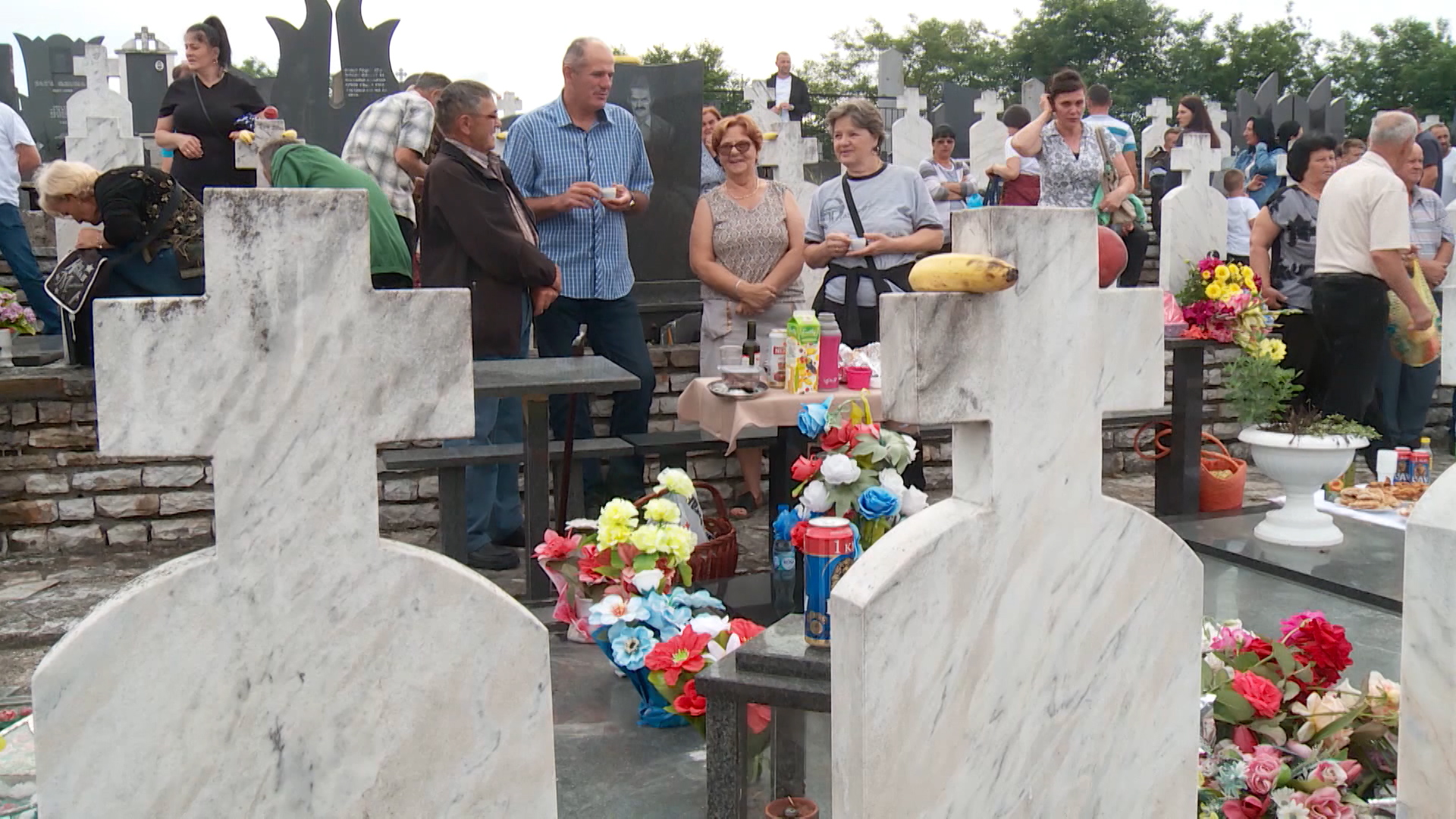
A memorial service for Serb civilians and soldiers who were killed on St. Peter's Day (Petrovdan) in 1992 in Zalazje was held in this east-Bosnian village on Sunday. Crying mothers and wives laid wreaths and lit candles for their loved ones from whom they said goodbye more than two decades ago.
"I was left with two children. My husband was taken away, captured. We found his bones 20 years later and worst of all – no one ever answered for his death. He was taken alive to Srebrenica and I learned that they were all brutally murdered," said Milojka Simic, a grieving wife at the memorial in Zalazje.
The memorial service was also attended by Srebrenica Mayor Mladen Grujicic and a representative of the Ministry of Labor and Veterans' Protection of the Serb dominated Republika Srpska (RS) entity, Milan Torbica.
"It is devastating that the Bosnian judiciary is bringing selective justice directed against one people, while no one's been held accountable for these crimes, which are supported by evidence," Grujicic said.
The Srebrenica church will host an evening prayer Sunday evening accompanied by an evening of spiritual music at the temple gate, after which there will be traditional lighting of St. Peter's lilacs.
Monday's commemoration will end the program of the traditional memorial, spiritual-humanitarian and cultural-sports event called "St. Peter's Days", which is organized in memory of the fallen Serbs from this area.

A total of 69 people of Serb nationality were killed in the Drina valley on St. Peter's Day, and 22 of them went missing, only seven of whom were found alive. Of the 22 missing persons, 10 were accidentally found and exhumed on June 10, 2011, from a mass grave in Zalazje, while searching for killed Bosniaks.
The remains of the victims were identified and buried on St. Peter's Day in 2012 - more than a year later, while two bodies were exhumed, identified and buried earlier.
The remaining ten missing persons have not yet been found.
Bosnian general Naser Oric was indicted but later acquitted of those crimes by the International Criminal Tribunal for Former Yugoslavia. However many Serbs still perceive him as guilty and believe that court is biased against Serbs.
The Zalazje commemoration is taking place every year a day after Bosniaks mark the 1995 Srebrenica genocide - the systematic killing of some 8,000 Bosniaks by Bosnian Serb forces which is often referred to as the worst crime committed on European soil since WWII.
Kakvo je tvoje mišljenje o ovome?
Učestvuj u diskusiji ili pročitaj komentare





 Srbija
Srbija
 Hrvatska
Hrvatska
 Slovenija
Slovenija







